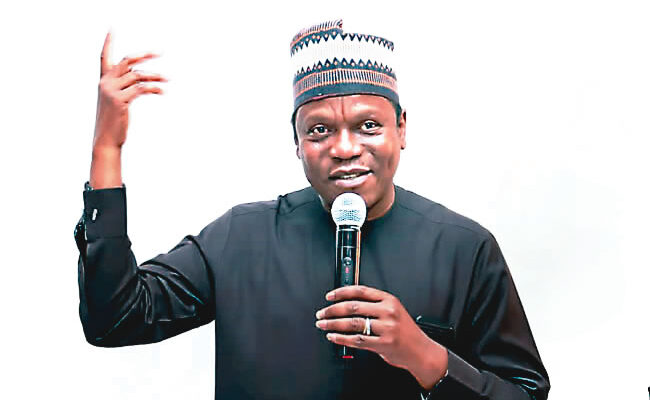

The Special Public Works department of the National Directorate of Employment (NDE) was created in an effort to combat the perennial challenge of youth unemployment in Nigeria. CHRISTIAN APPOLOS writes on how the programme has achieved its mandate over the years.
The Special Public Works (SPW) department of the National Directorate of Employment (NDE) is one of the four core programmes of the directorate. It is designed to address the problem of unemployment among youths. The programme, according to NDE, is designed to achieve its purpose through the provision of transient jobs and technical skills acquisition training that will promote skilled, semi-skilled and professional manpower/labour for self-employment and self-reliance.

Serving as a part of the vehicle through which NDE is currently delivering its mandate of employment provision for Nigeria’s teeming unemployed persons, the SPW scheme components are: Graduate Attachment Programme (GAP), Graduate Special Training Programme (GSTP), Environmental Beautification Training Scheme (EBTS), Graduate Coaching Scheme (GCS), Solar Energy Training Scheme (SETS) Artisans in Collaborative Construction Employment Scheme (ACCES), Enviroprenuership Development Scheme (EDS), Labour Based and Infrastructural Development Scheme (CDS), Community Based Business Training Scheme (CBBTS).
With the support of President Muhammadu Buhari, under the supervision of the Minister of State for Labour and Employment, Mr Festus Keyamo, and implementing directorship of the NDE’s Director-General, Mallam Abubakar Nuhu Fikpo, the SPW schemes have become an effective job creation tool and a decent job module. And not surprisingly, the schemes have been judged one of the most sustainable job provision solutions to arrest the swelling unemployment rate in Nigeria and many other countries, especially in Africa.
Although the National Directorate of Employment was recently described as the hub of blue collar jobs in Nigeria by the Minister of State, Labour and Employment, Festus Keyamo, the relentless trajectory of the directorate in providing self and wage employment for millions of Nigerians, indicates the NDE is ingeniously proffering solutions to the country’s unemployment challenge.
According to the DG, Mallam Fikpo, the result-oriented job provision schemes and continued support of the President and its supervising minister, NDE is geared to crash the menace of high rate of unemployment in Nigeria.
While testimonies of many beneficiaries of the schemes and programmes attest to the fact that SPW is a success story that must to be sustained in the efforts to combat unemployment and its ripple effects, official records have also shown that the directorate, through the Special Public Works schemes and other job creation programmes, has provided about 4,261,308 self employments and wage employments within a short period of time. The figures further show that about 2,545,102 are male while 1,716,206 are female beneficiaries across the 36 states of the federation and Federal Capital Territory, Abuja.
The NDE DG, while giving a brief insight into the nine different SPW schemes, explained what Nigerians need to know about them. On the Graduate Attachment Programme (GAP), he said, “The scheme is designed to provide transient employment to unemployed graduates of tertiary institutions. The unemployed graduates are recruited and attached to willing corporate organisations for a period of three to 12 months to gain needed practical experience that would facilitate their employability by the organisation on or before the expiration of the internship period.”
Mallam Fikpo said the Environmental Beautification Training Scheme is “for the training of unemployed persons in soft/hard landscaping and Plaster of Paris (POP) for a period of three months.
“Participants are attached to master-trainers to ensure that they acquire professional skills in environmental beautification, sanitation and protection/control of the environment. At the end of the training period, the participants are empowered with working tools and equipment to start their own business. The scheme is targeted at school leavers, the unschooled and any other interested persons, graduates inclusive.”
He noted that the Graduate Coaching Scheme “creates both transient and permanent/sustainable employment for the unemployed graduates of tertiary institutions especially those with educational training (professional teachers) background.
“The graduates are recruited as instructors to prepare students who may be deficient in some subjects for various external examinations such as JAMB, WAEC/NECO, NABTEB, GCE, etc. for a period of three months. This will enable the students to make up for their deficiency in various subjects and also qualify them for admission into higher institutions of learning.”
Speaking on Solar Energy Training Scheme (SETS), the NDE DG said, “The scheme is one of the renewable energy training schemes employed by the Special Public Works Department for employment generation. Under the scheme, unemployed graduates of tertiary institutions (especially those with engineering/technical knowledge) are trained to acquire skills in solar energy design, procurement, installation and maintenance of solar facilities. The scheme is targeted at graduates of training institutions and other interested persons with technical background.”
He said the Graduate Special Training Programme (GSTP) “is for graduates of tertiary institutions. It involves a two-week digital skills training on specialised applications relevant to skills needed in specific careers or professional practices. The skill sets include autodesk, project management, hardware installations e.g. dish and satellite installations, V–Sat and internet installations and networking. At the end of the training, participants are attached to well-managed small and medium enterprises for a period of three to six months to develop competence in the learnt skills.
“The training prepares participants to possess skills relevant to meet demands for the job, function effectively and succeed in the technology-based millennium workplace. Competence in these skills confers on the holder a competitive edge in securing employment and/or starting a business.”
The Artisans in Collaborative Construction Employment Scheme (ACCES), he said, is designed “to collaborate with relevant stakeholders and organisations in the construction sector where standards of various professions are imbibed. The scheme is also targeted at imparting industry-led competency skills as well as providing required certification to artisans under appropriate professional bodies.”
Mallam Fikpo said the Enviroprenuership Development Scheme (EDS) is “designed to combat unemployment among youths by bringing market principles to resolve environmental problems. It is aimed at improving environmental sustainability and social contribution to society. Business initiatives are applied to turn waste into wealth to improve the standard of living of both the end consumers and the participants.”
Labour Based and Infrastructural Development Scheme (CDS) on the other hand is designed “to facilitate the engagement and training categories of unemployed persons in the construction, rehabilitation and maintenance of varieties of infrastructure. This is achieved by adopting the labour-based method of infrastructural development, thus making optimal use of labour supported by compactable light equipment.
“The scheme offers participants the opportunity to develop their skills and work experience. Additional job creation, wealth creation, and infrastructure development is archived within the benefiting communities.”
Speaking on the Community Based Business Training Scheme (CBBTS), he said, “This scheme is designed to train unemployed persons in businesses that have comparative advantage in selected communities. It focuses on social, structural and physical environmental inequalities through active involvement of community members, organisational representatives and employers of labour.”
“Partners/members of community-based businesses contribute their expertise to enhance understanding of a given business phenomenon and to translate knowledge into action. Community-based businesses are socially and environmentally responsible where they are driven by the desire to re-invest in the community as a way to strengthen it, where collaboration, partnership, advocacy and co-creation are top values.”
YOU SHOULD NOT MISS THESE HEADLINES FROM NIGERIAN TRIBUNE
Treason: Obi, Datti’s comments don’t violate Section 37 of criminal code — Falana
Leading rights lawyer, Mr. Femi Falana on Thursday dismissed the claim by the Buhari administration that the Labour Party presidential team of Peter Obi and Datti Ahmed is engaging in subversive acts…
Obi threatens lawsuit against Peoples Gazette, says leaked audio fake
Presidential candidate of the Labour Party in the February 25 elections, Peter Obi, has dismissed leaked audio of an alleged conversation between him and Bishop David Oyedepo, founder of Living Faith Church Worldwide, as fake.…
Whitney Adeniran: Lagos govt places Chrisland school on probation
Chrisland High School in Ikeja, Lagos, has been placed on probation by the Lagos State Government for one academic session to monitor adherence to safety policies and guidelines…
Ilorin youths clash, destroy 25 cars over girlfriend in JSS class
At least, 25 cars were destroyed as youths from Itamerin and Ode Popo communities lay claim to the boyfriend of one Aisha, a JSS student.…
Super Falcons kick off training in Turkey ahead of international friendlies
Nigeria’s Super Falcons on Wednesday in Antalya had their first training session since arrival in Turkey on Tuesday ahead of the international friendlies against Haiti and New Zealand…
EDITORIAL: DSS alarm on interim government
SINCE last week’s declaration by the Department of State Services (DSS) that some members of the political class were plotting an interim government to truncate the smooth handing over of power by President Muhammadu Buhari,…








